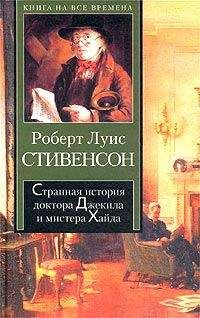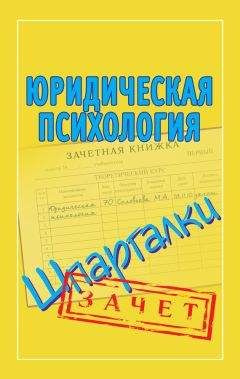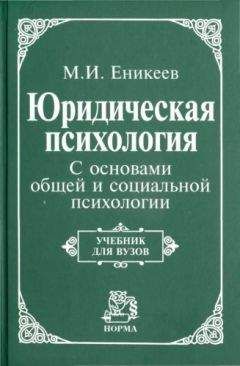Роберт Стивенсон - Английский с Р. Л. Стивенсоном. Странная история доктора Джекила и мистера Хайда / Robert Louis Stevenson. The Strange Case of Dr. Jekyll and Mr. Hyde
The letter was written in an odd, upright hand, and signed “Edward Hyde;” (это письмо было написано странным = необычным, прямым почерком, и было подписано «Эдвард Хайд»; hand – рука; почерк) and it signified, briefly enough, that the writer’s benefactor, Dr. Jekyll (и в нем сообщалось, достаточно кратко, что благодетель пишущего, доктор Джекил), whom he had long so unworthily repaid for a thousand generosities (которому он так долго неблагодарно отплачивал за тысячи щедрот), need labour under no alarm for his safety (не должен беспокоиться о его безопасности; to labour – трудиться; быть в затруднении, подвергаться /чему-либо/; alarm – тревога; смятение, страх), as he had means of escape on which he placed a sure dependence (потому что он придумал план бегства, в котором он полностью уверен; means – средство, способ; dependence – зависимость; доверие; to depend – зависеть). The lawyer liked this letter well enough (нотариусу это письмо весьма понравилось); it put a better colour on the intimacy than he had looked for (оно проливало более благоприятный свет на это близкое знакомство, чем он ожидал; colour – цвет; свет, вид); and he blamed himself for some of his past suspicions (и он упрекнул себя за некоторые из своих прошлых подозрений; to blame – порицать, обвинять).
The letter was written in an odd, upright hand, and signed “Edward Hyde;” and it signified, briefly enough, that the writer’s benefactor, Dr. Jekyll, whom he had long so unworthily repaid for a thousand generosities, need labour under no alarm for his safety, as he had means of escape on which he placed a sure dependence. The lawyer liked this letter well enough; it put a better colour on the intimacy than he had looked for; and he blamed himself for some of his past suspicions.
“Have you the envelope (конверт у вас)?” he asked.
“I burned it (я его сжег),” replied Jekyll, “before I thought what I was about (прежде чем сообразил, что я делаю; to be about to do smth. – собираться, намереваться сделать что-либо). But it bore no postmark (но на нем не было почтового штемпеля). The note was handed in (записка = письмо было передано с посыльным; to hand in – вручать).”
“Shall I keep this and sleep upon it (мне забрать письмо и отложить решение вопроса до утра; to sleep – спать; to sleep on/over a question/problem – отложить решение вопроса до утра)?” asked Utterson.
“I wish you to judge for me entirely (я целиком полагаюсь на ваше суждение: «я хочу, чтобы вы полностью за меня/вместо меня оценили ситуацию»),” was the reply (последовал ответ). “I have lost confidence in myself (себе я больше не доверяю; to lose – терять; утратить, не сохранить).”
“Well, I shall consider (ну, я подумаю),” returned the lawyer. “And now one word more (а теперь вот еще что: «еще одно слово»): it was Hyde who dictated the terms in your will about that disappearance (это Хайд продиктовал те условия вашего завещания, в которых говорится об исчезновении)?”
“Have you the envelope?” he asked.
“I burned it,” replied Jekyll, “before I thought what I was about. But it bore no postmark. The note was handed in.”
“Shall I keep this and sleep upon it?” asked Utterson.
“I wish you to judge for me entirely,” was the reply. “I have lost confidence in myself.”
“Well, I shall consider,” returned the lawyer. “And now one word more: it was Hyde who dictated the terms in your will about that disappearance?”
The doctor seemed seized with a qualm of faintness (у доктора, казалось, начался приступ дурноты; to seize – схватить; охватить, обуять; qualm – тошнота, дурнота); he shut his mouth tight and nodded (он плотно сжал губы и кивнул).
“I knew it (я так и знал),” said Utterson. “He meant to murder you (он намеревался вас убить). You have had a fine escape (вам едва удалось избежать опасности: «у вас было тонкое/хорошее избавление»; fine – тонкий; изящный; хороший, прекрасный; escape – бегство; избавление, спасение).”
“I have had what is far more to the purpose (мне удалось нечто более важное: «нечто значительно большее для цели»; purpose – цель; результат, успех),” returned the doctor solemnly (серьезно ответил доктор; solemn – торжественный; важный, серьезный): “I have had a lesson – O God, Utterson, what a lesson I have had (я получил урок, о Боже, Аттерсон, какой урок я получил)!” And he covered his face for a moment with his hands (и на мгновение он закрыл лицо руками).
The doctor seemed seized with a qualm of faintness; he shut his mouth tight and nodded.
“I knew it,” said Utterson. “He meant to murder you. You have had a fine escape.”
“I have had what is far more to the purpose,” returned the doctor solemnly: “I have had a lesson – O God, Utterson, what a lesson I have had!” And he covered his face for a moment with his hands.
On his way out, the lawyer stopped and had a word or two with Poole (уходя: «на обратном пути», нотариус задержался, чтобы перекинуться парой слов с Пулом). “By the by (между прочим),” said he, “there was a letter handed in today: what was the messenger like (сегодня было доставлено письмо: как выглядел посыльный)?” But Poole was positive nothing had come except by post (но Пул был совершенно уверен, что вся корреспонденция была доставлена только почтой: «что ничего не поступало, кроме как по почте»; positive – несомненный; уверенный /в чем-либо/); “and only circulars by that (да и то – одни только рекламные проспекты; circular – круглый, округлый; круговой; циркуляр; реклама; проспект; рекламное объявление; circle – круг),” he added (добавил он).
On his way out, the lawyer stopped and had a word or two with Poole. “By the by,” said he, “there was a letter handed in today: what was the messenger like?” But Poole was positive nothing had come except by post; “and only circulars by that,” he added.
This news sent off the visitor with his fears renewed (это известие пробудило в госте = нотариусе все его /прежние/ страхи; to send off – отсылать; провожать; to renew – обновлять; возобновлять). Plainly the letter had come by the laboratory door (очевидно, что письмо это доктор получил через дверь лаборатории); possibly, indeed, it had been written in the cabinet (возможно даже, что на самом деле оно было написано в самом кабинете); and, if that were so, it must be differently judged (и если это так, то и оценивать его надо по-другому), and handled with the more caution (и обращаться с ним с большей осторожностью). The news-boys as he went, were crying themselves hoarse along the footways (пока он шел, разносчики газет кричали до хрипоты, стоя на тротуаре): “Special edition (специальный выпуск; edition – издание; выпуск). Shocking murder of an M. P. (ужасающее убийство члена парламента; M. P. = Member of Parliament).”
This news sent off the visitor with his fears renewed. Plainly the letter had come by the laboratory door; possibly, indeed, it had been written in the cabinet; and, if that were so, it must be differently judged, and handled with the more caution. The news-boys as he went, were crying themselves hoarse along the footways: “Special edition. Shocking murder of an M. P.”
That was the funeral oration of one friend and client (так звучала панихидная речь его другу и клиенту); and he could not help a certain apprehension (и он не мог ничего поделать с /определенными/ дурными предчувствиями) lest the good name of another should be sucked down in the eddy of the scandal (как бы доброе имя его другого /друга и клиента/ не оказалось в водовороте скандала; to suck down – засасывать, затягивать /о водовороте, трясине/). It was, at least, a ticklish decision that he had to make (во всяком случае, ему предстояло принять трудное решение; ticklish – боящийся щекотки; деликатный, щекотливый; to tickle – щекотать); and, self-reliant, as he was by habit (и, хотя по натуре он был человеком, надеющимся только на себя; habit – привычка; склад, натура; to rely – полагаться, надеяться; доверять, быть уверенным /в чем-либо – on, upon/), he began to cherish a longing for advice (он начал испытывать сильнейшее желание спросить у кого-либо совета; to cherish – лелеять; longing for smth. – сильное желание чего-либо, стремление к чему-либо). It was not to be had directly (конечно, получить совет напрямую было невозможно); but perhaps, he thought, it might be fished for (но можно, подумал он, хотя бы попытаться; to fish – ловить рыбу; стараться получить).
That was the funeral oration of one friend and client; and he could not help a certain apprehension lest the good name of another should be sucked down in the eddy of the scandal. It was, at least, a ticklish decision that he had to make; and, self-reliant, as he was by habit, he began to cherish a longing for advice. It was not to be had directly; but perhaps, he thought, it might be fished for.
Presently after, he sat on one side of his own hearth (вскоре после этого он сидел с одной стороны своего собственного камина), with Mr. Guest his head clerk upon the other (а мистер Гест, его старший клерк – напротив него: «с другой стороны»; head – верхний; главный, старший), and midway between, at a nicely calculated distance from the fire (а между ними, на тщательно рассчитанном расстоянии от огня), a bottle of a particular old wine (располагалась бутылка особенно старого вина = заветного старого вина) that had long dwelt unsunned in the foundations of his house (которая долгое время пребывала, скрытая от солнечного света, в подвалах его дома; foundation – основание /города и т. п./; фундамент; to dwell – жить, обитать, находиться, пребывать). The fog still slept on the wing above the drowned city (густой туман все еще спал «на крыле» = находясь в воздухе над затопленным городом; to be on the wing – лететь), where the lamps glimmered like carbuncles (в котором, подобно карбункулам, тускло светили = рдели фонари); and through the muffle and smother of these fallen clouds (а сквозь приглушенный плотный туман этих упавших облаков; muffle – приглушенный звук; to muffle – закутывать, окутывать; глушить, заглушать /звук/; smother – густое облако дыма или пыли; удушливый запах; to smother – душить, вызывать приступ удушья), the procession of the town’s life was still rolling in (процессия городской жизни все продолжала катиться; to roll in – сходиться /в большом количестве/) through the great arteries with a sound as of a mighty wind (по огромным магистралям: «артериям», с ревом, подобным реву ветра: «со звуком, подобным звуку мощного ветра»).




